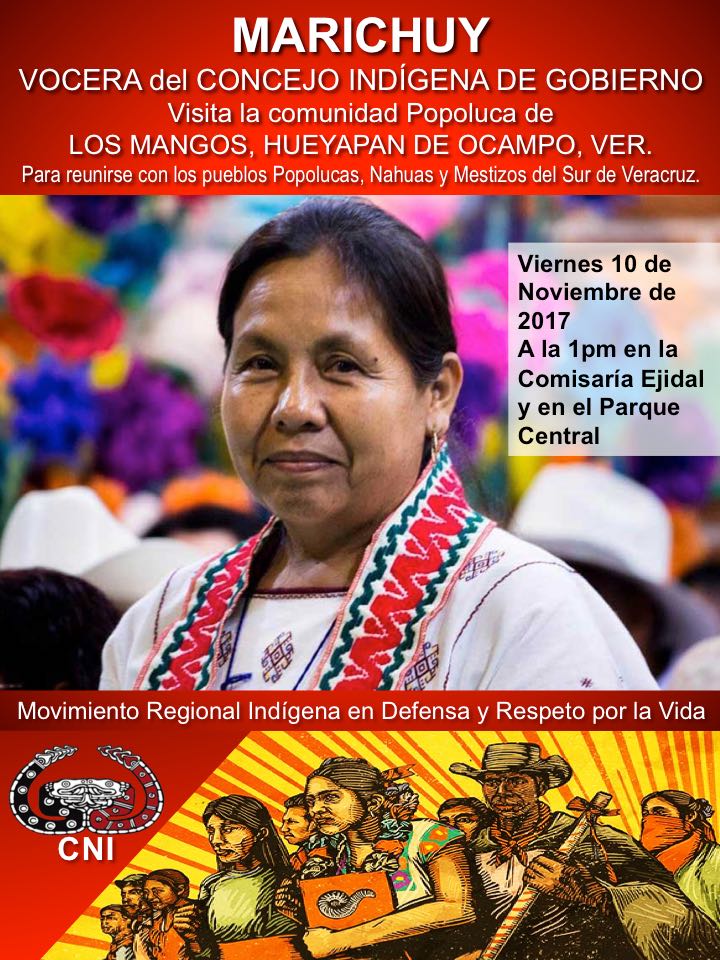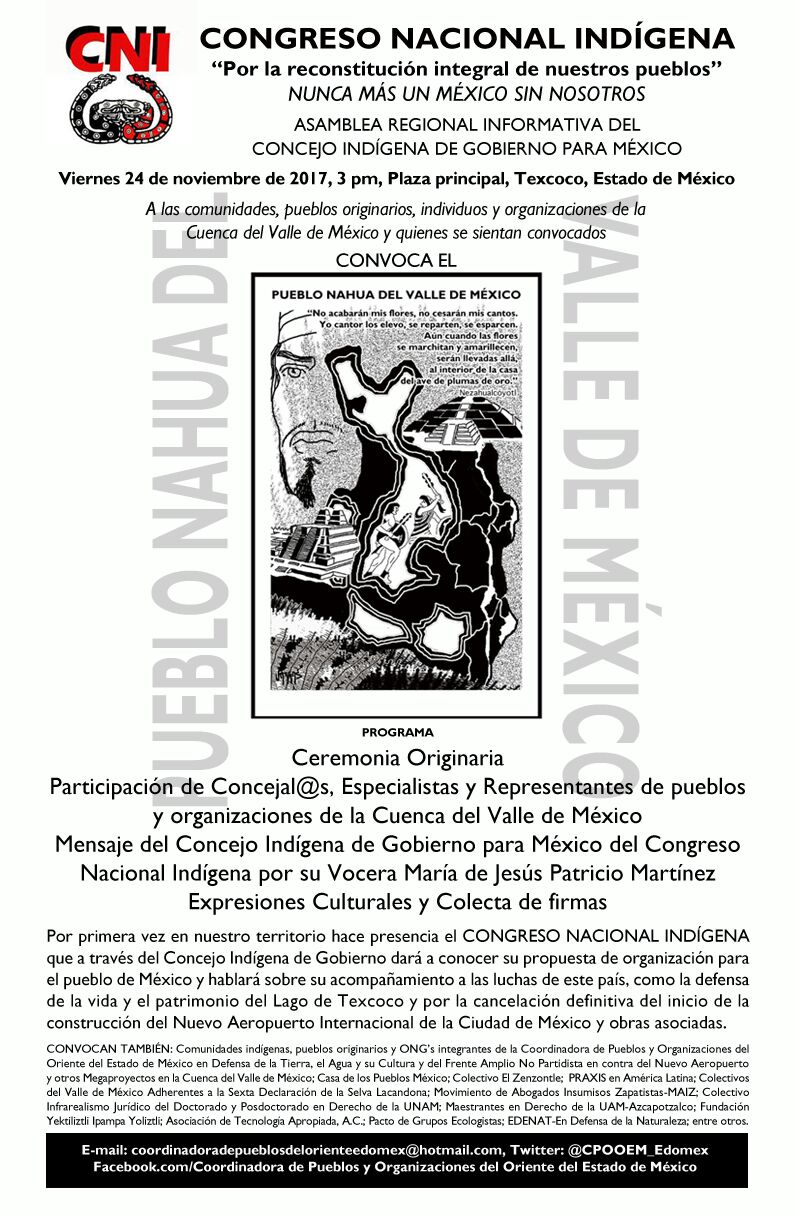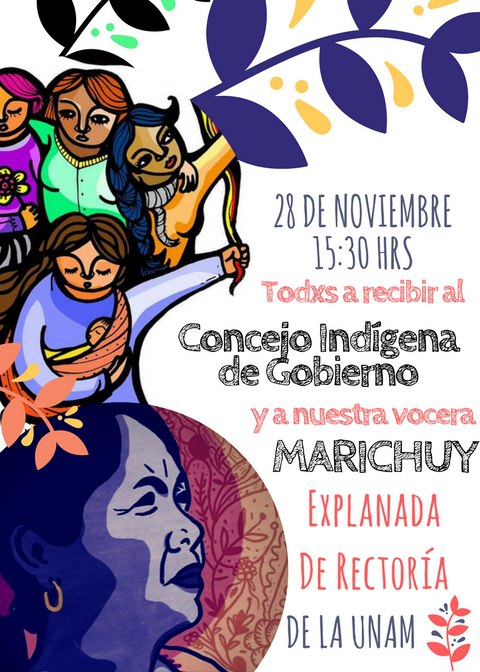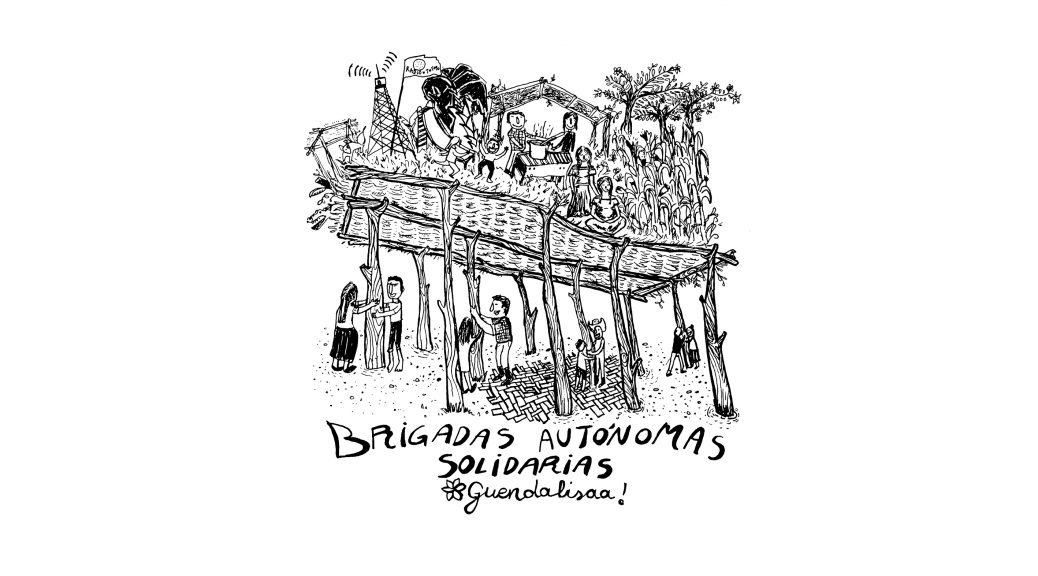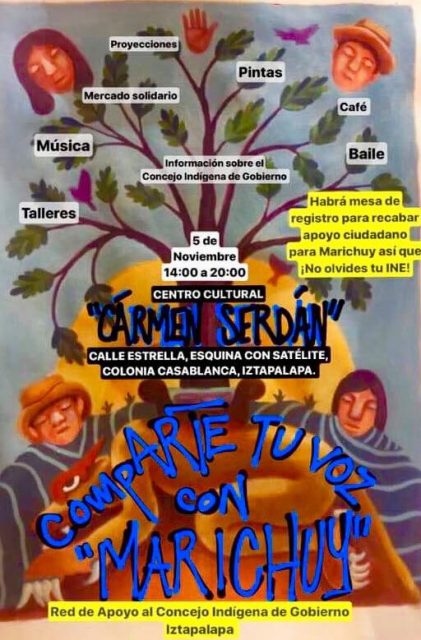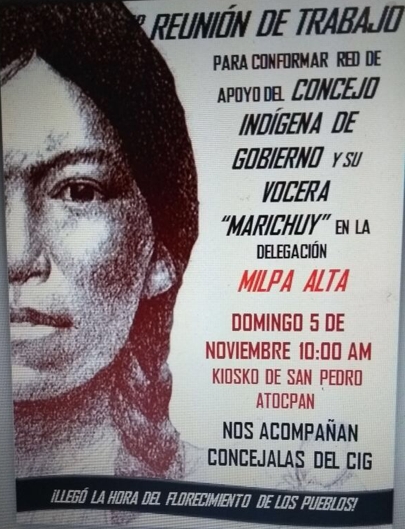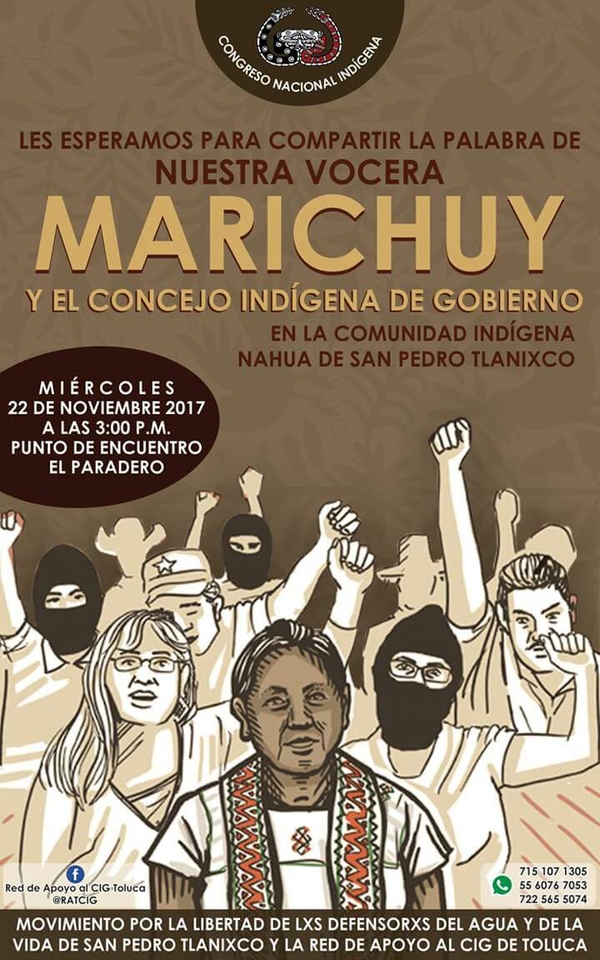
Mexico

(Español) Informe del CNI y el CIG sobre lo recaudado para lxs damnificados del sismo
INFORME DEL CONGRESO NACIONAL INDÍGENA Y EL CONCEJO INDÍGENA DE GOBIERNO SOBRE LO RECAUDADO PARA LAS Y LOS DAMNIFICADOS DEL SISMO
OCTUBRE DE 2017
Al pueblo de México
A los pueblos del Mundo
A la Sexta Nacional e Internacional.
A partir del llamado de solidaridad realizado en el mes de septiembre por los ciclones, huracanes y temblores en Chiapas, Oaxaca, Puebla, Guerrero, Morelos, Estado de México, Veracruz y la ciudad de México nos hemos dado cuenta de que el México de abajo va a reconstruir no sólo las comunidades, barrios, naciones, tribus y pueblos del Congreso Nacional Indígena (CNI) sino el país completo.
Para esta tarea hemos contactado a nuestras hermanas y hermanos indígenas que sufren los estragos de las catástrofes naturales, para hacer llegar la ayuda que con la solidaridad de muchas compañeras y compañeros se ha construido.
A esta fecha hemos recibido, en los centros de acopio un aproximado de 60 toneladas de víveres, ropa, agua, medicamento que ha sido distribuido en la Costa de Chiapas, Juchitán, Oaxaca, la región de los Volcanes en Puebla, Morelos y las regiones de la Costa y la Montaña en Guerrero.
También en las cuentas bancarias y donativos entregados en mano, hemos recibido: 7,038 dólares, 2,805 euros, 759,987 pesos.
Todos estos donativos se recibieron no sólo de gente de nuestro país, sino de varios países del mundo, lo que nos habla de una solidaridad internacionalista y nacional, entre los de abajo y a la izquierda. Igualmente en México y el extranjero se realizaron rifas y diversas actividades para recabar fondos. Distintas cantidades, distintos esfuerzos individuales y colectivos que no alcanzan a reflejarse cabalmente en solo unos números y cantidades recibidas. Pero nosotros lo sabemos hermanas y hermanos, nos tendieron la mano en estos duros momentos, de eso no hay duda.
Cualquier aclaración al respecto de dichos donativos puede solicitarse a la dirección de correo electrónico comunicacion@congresonacionalindigena.org
Estas donaciones están siendo destinadas principalmente para la compra de material de construcción que será utilizado en comunidades de la Costa de Chiapas y del Istmo de Oaxaca. De la aplicación de estos recursos se informará en los siguientes días.
Llegar a las comunidades afectadas y entregar lo que se necesita ha sido a través de delegadas y delegados del CNI y del CIG. Sabemos que las necesidades no se van a terminar con que llegue una sola vez el apoyo, sino que será un camino largo para reconstruir nuestros pueblos, así que seguiremos trabajando.
Por la Reconstitución Integral de Nuestros Pueblos
Nunca más un México sin Nosotros
Atentamente
Comisión de coordinación y seguimiento del Concejo Indígena de Gobierno
Congreso Nacional Indígena

(Español) Dipticos con información sobre la propuesta del CIG y el CNI
¡DESCARGA, IMPRIME Y DIFUNDE!
Diptico 1 con información sobre la propuesta del CIG y el CNI- EN BLANCO Y NEGRO (Descarga aquí)
Diptico 2 con información sobre la propuesta del CIG y el CNI – A COLOR (Descarga aquí)
Diptico 2 con información sobre la propuesta del CIG y el CNI – EN BLANCO Y NEGRO (Descarga aquí)
